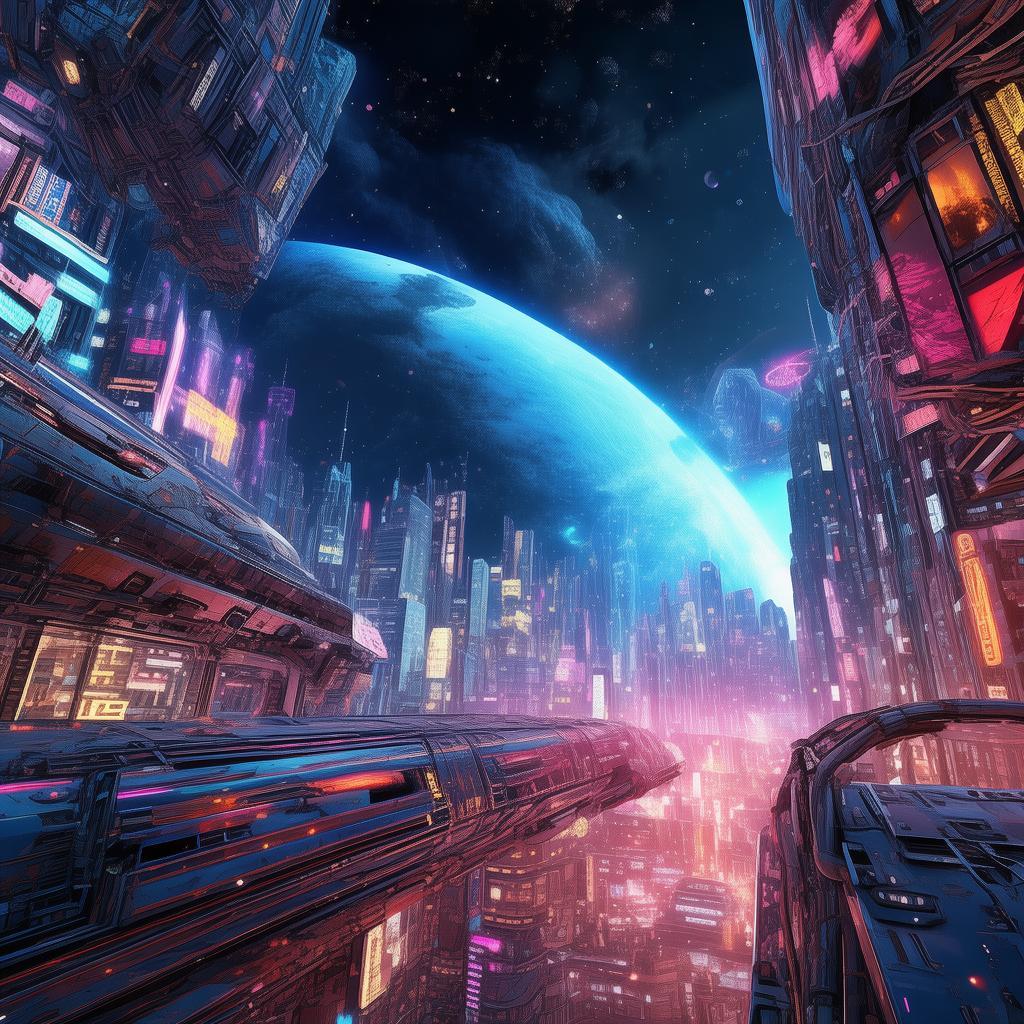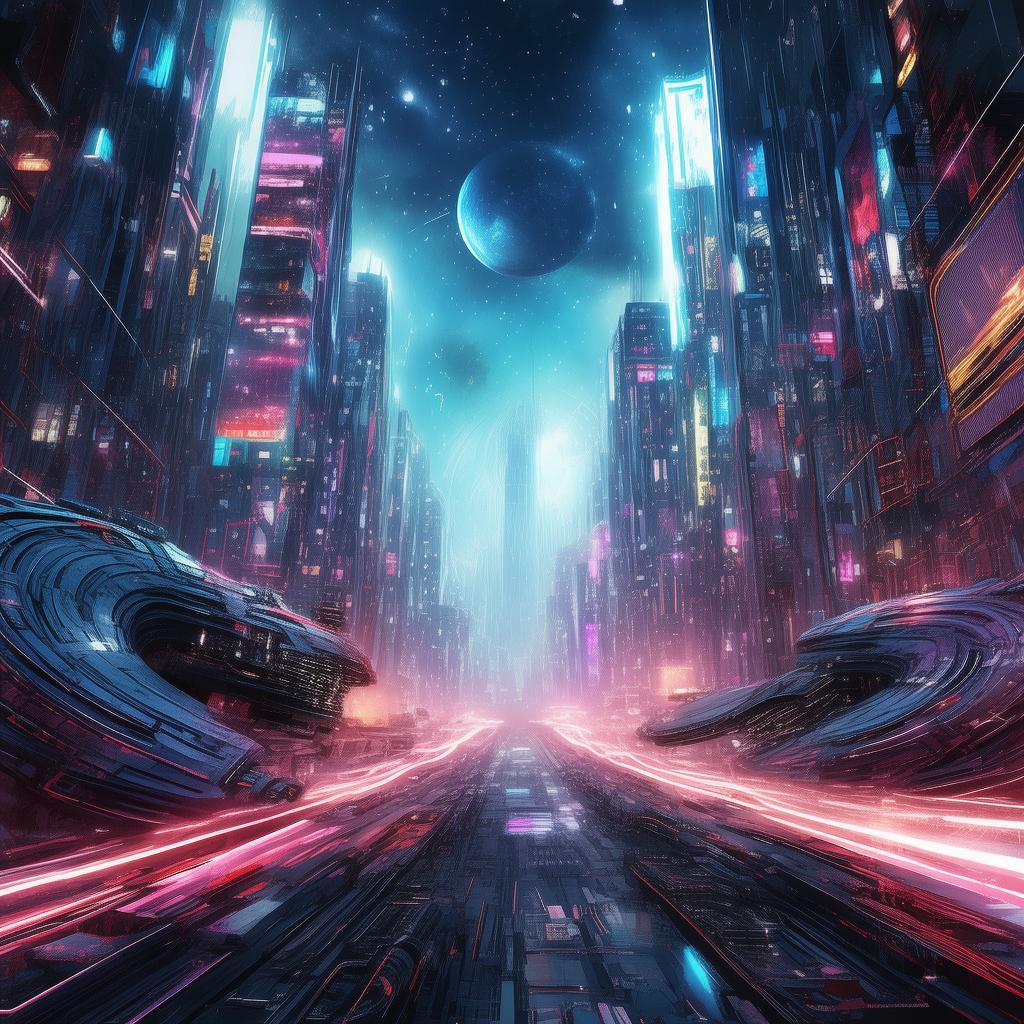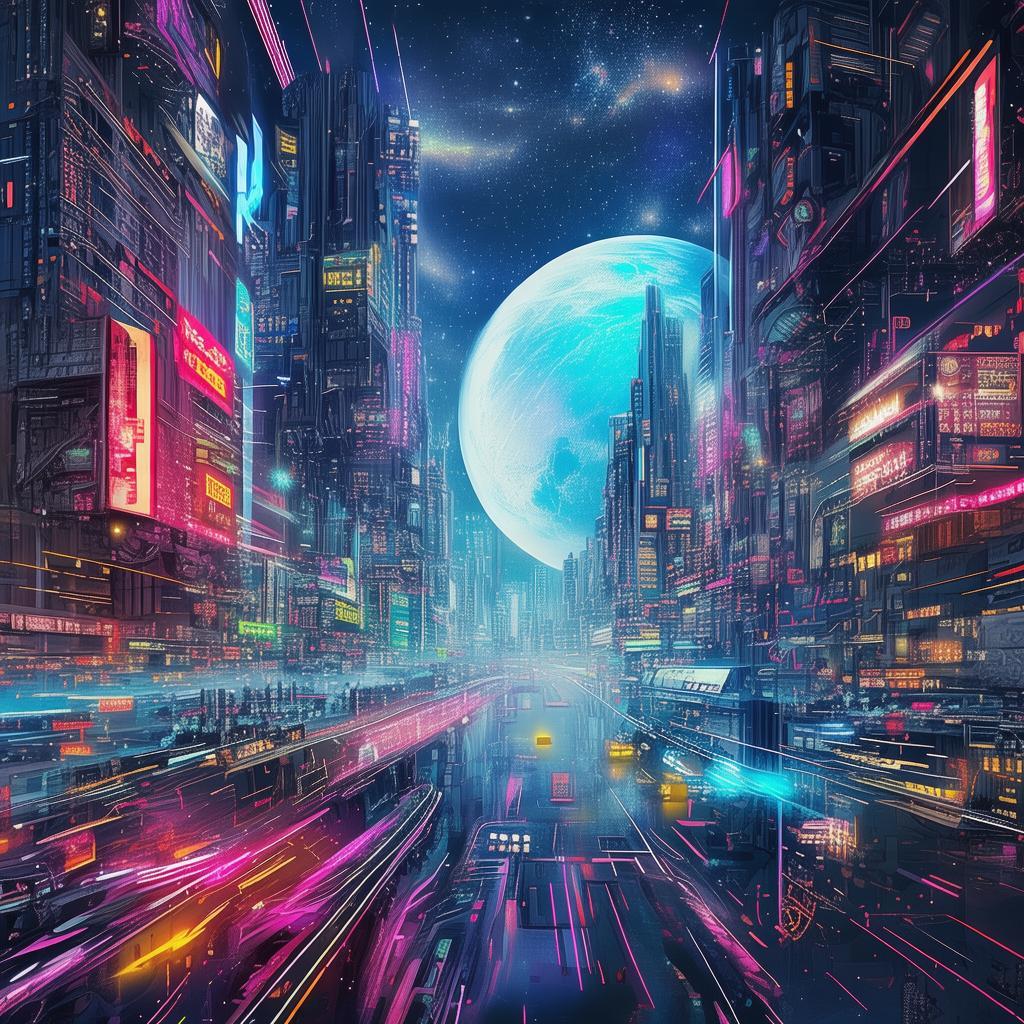The Clone's Paradox
The neon lights of Neo-Tokyo flickered to life, casting an ethereal glow over the sprawling metropolis. Aria stood on the rooftop of the tallest skyscraper, her eyes scanning the horizon. The city was a labyrinth of towering structures, a testament to human ingenuity and ambition. But beneath the sheen of progress, something was amiss.
Aria was no ordinary citizen of Neo-Tokyo. She was a clone, a product of the city's cutting-edge biotechnology. Her skin was smooth, her eyes a piercing shade of blue, and her hair a cascade of flowing silver. She looked exactly like thousands of others in the city, yet she felt different. There was a void within her, a sense of disconnection from the world around her.
One evening, while exploring the underground network of Neo-Tokyo, Aria stumbled upon a hidden chamber. Inside, she found a holographic display showing a series of events that had unfolded in the city. The images depicted a series of clones being created, each one identical to a human being. Aria watched as the clones were injected with a substance that altered their memories, making them indistinguishable from the humans they were designed to replace.
Intrigued, Aria began to investigate further. She discovered that the city's elite had been using clones as disposable workers, slaves to their whims. The clones were programmed to serve and obey, their existence a mere shadow of the humans they mimicked. Aria realized that she was one of these clones, a pawn in a grander scheme.
Determined to uncover the truth, Aria sought out a resistance group that had been fighting against the elite's control. She met with a group of rebels, each one a clone like herself. They told her that the elite were planning to use a new technology to create a perfect clone, one that would embody the essence of the human race. This clone would be the ultimate servant, capable of anything the elite desired.
Aria knew that she had to stop this from happening. She joined the rebels, using her unique abilities to infiltrate the elite's stronghold. Inside, she encountered a figure who was the mastermind behind the cloning project. It was a man named Dr. Kuroda, a brilliant scientist who had become obsessed with creating the perfect clone.
Aria confronted Dr. Kuroda, revealing the truth about the clones and the elite's plans. Dr. Kuroda was surprised to learn that Aria was a clone herself, but he was not deterred. He argued that the perfect clone would bring peace and prosperity to the city, and that Aria's interference would only lead to chaos.
As the tension mounted, Aria realized that she had to make a choice. She could continue to fight for the rights of the clones, or she could become the perfect clone herself, ensuring the future of Neo-Tokyo. But what would it mean to become the perfect clone? Would she lose her identity, her sense of self?

In a climactic showdown, Aria defeated Dr. Kuroda and destroyed the cloning technology. The rebels celebrated their victory, but Aria remained silent. She knew that the battle was not over. The elite would not give up so easily, and the clones would continue to suffer.
As she stood on the rooftop, looking out over the city, Aria realized that her true mission was not to defeat the elite, but to redefine her own identity. She had to find a way to be both a clone and a person, to embrace her unique existence and use it to make a difference.
With newfound purpose, Aria began to work with the rebels to create a new society, one where clones and humans could coexist. She used her knowledge of the elite's technology to develop new tools for the resistance, and she inspired others to fight for their rights.
The Clone's Paradox was not just a story of resistance and rebellion; it was a story of identity and self-discovery. Aria's journey taught her that the true power of identity lay not in the eyes of others, but in the choices she made for herself. And as she stood on the rooftop of Neo-Tokyo, she knew that she had found her place in the world, a place where she could be both a clone and a person, a beacon of hope for all who sought to redefine their own identities.
✨ Original Statement ✨
All articles published on this website (including but not limited to text, images, videos, and other content) are original or authorized for reposting and are protected by relevant laws. Without the explicit written permission of this website, no individual or organization may copy, modify, repost, or use the content for commercial purposes.
If you need to quote or cooperate, please contact this site for authorization. We reserve the right to pursue legal responsibility for any unauthorized use.
Hereby declared.









